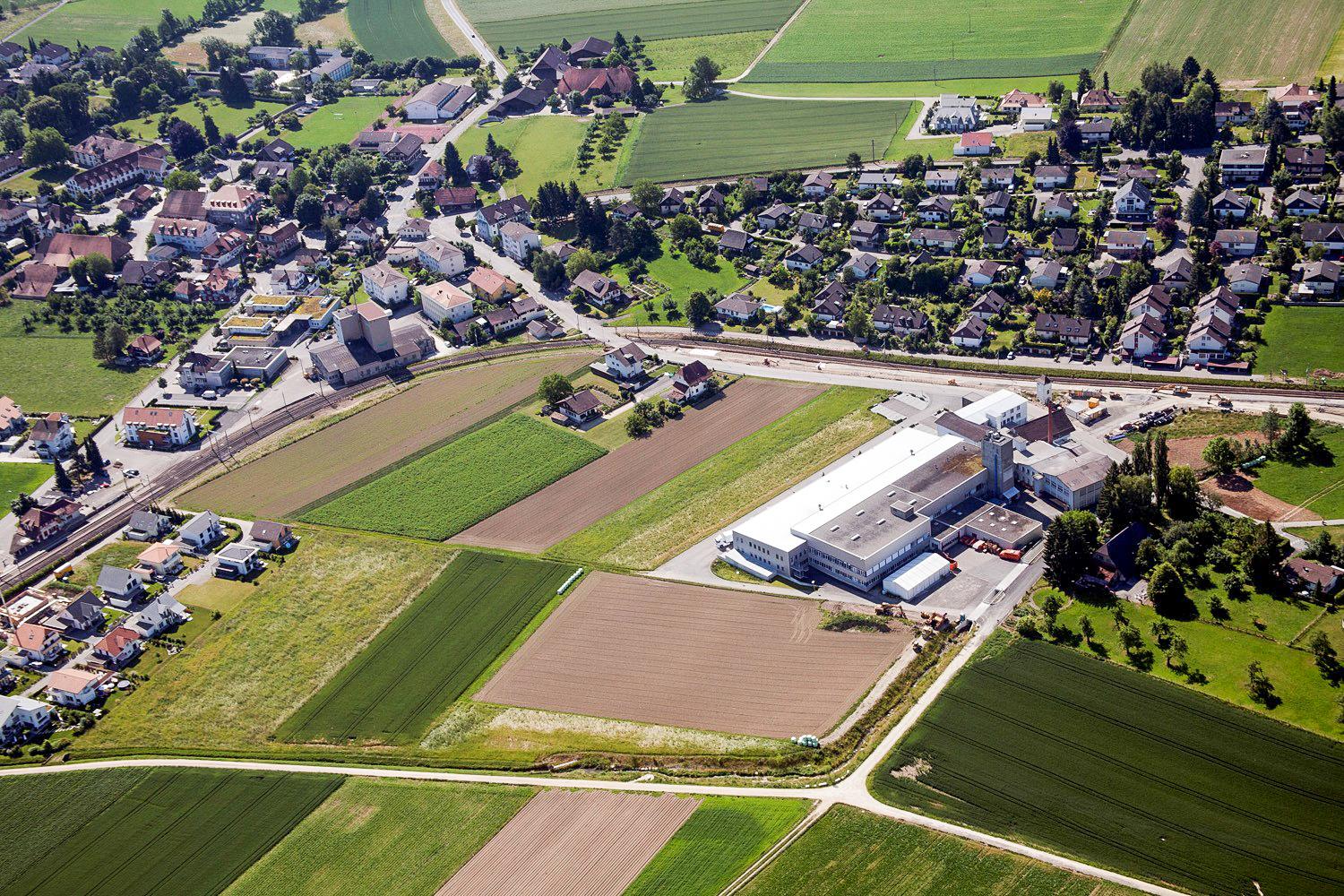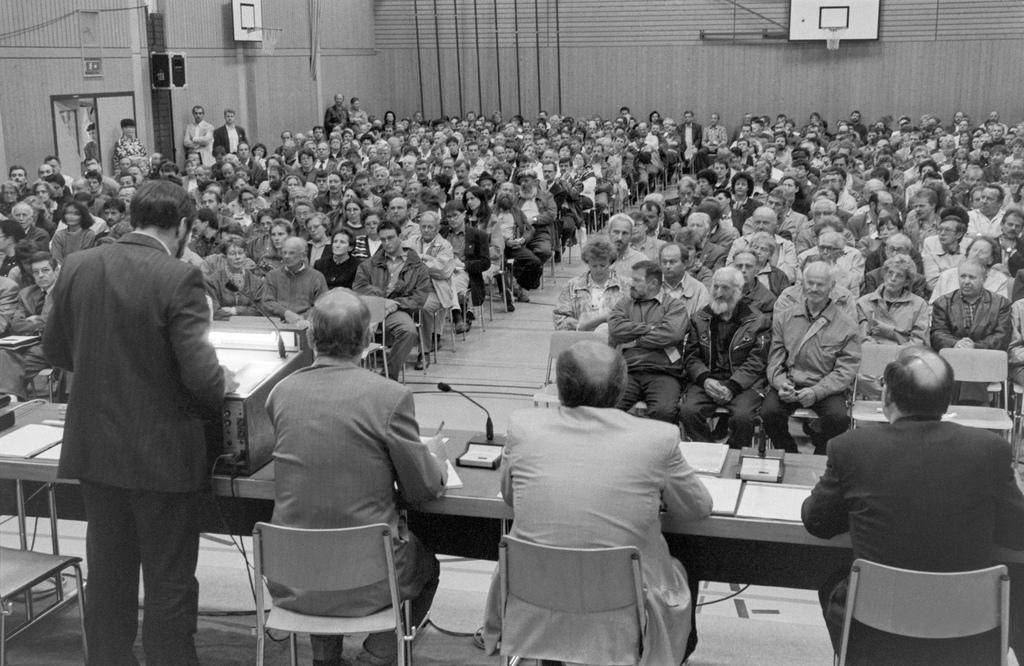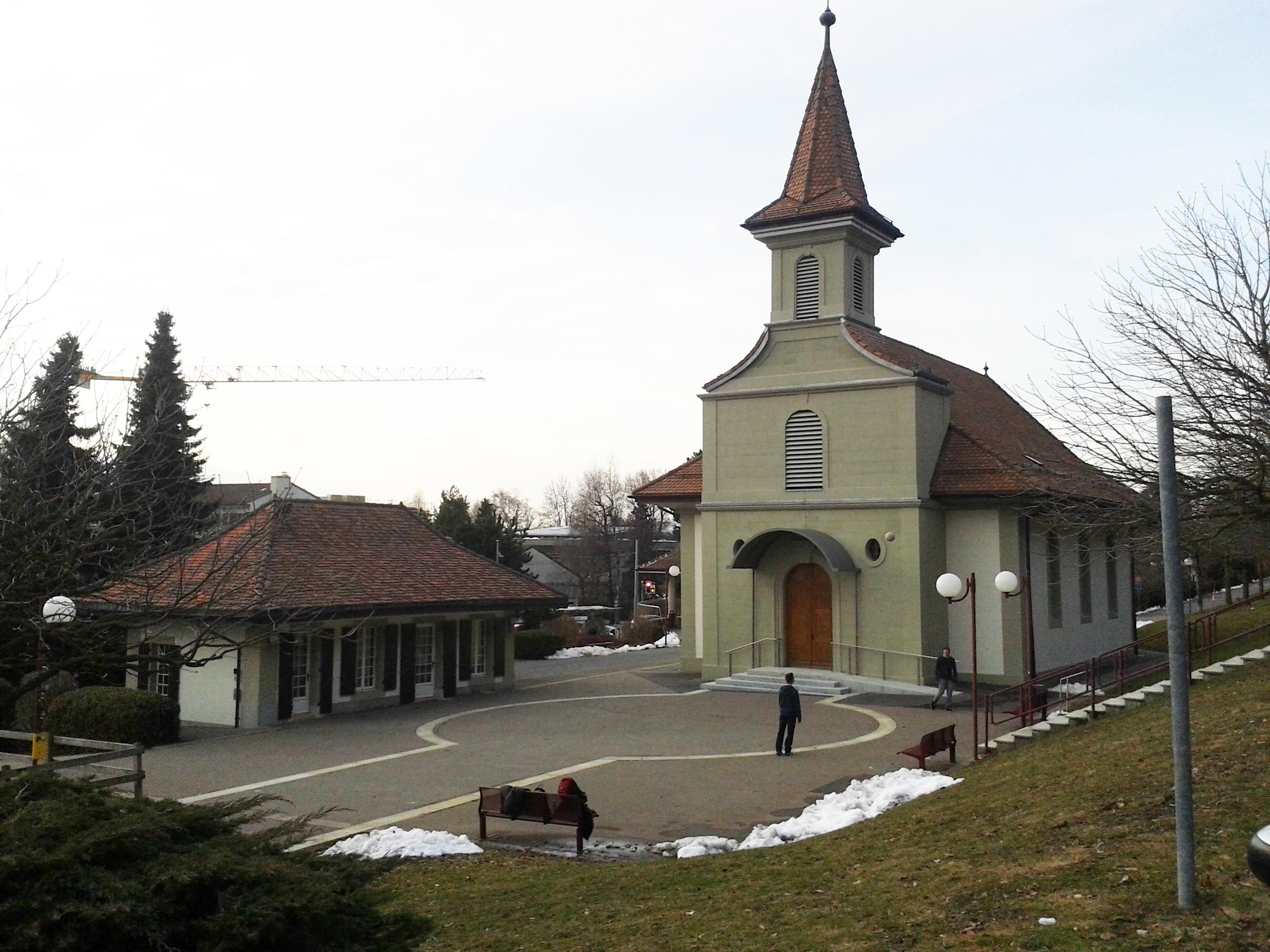Citizens put brakes on truck purchase

The obstacles preventing the addition of a truck to a village’s modest fleet of service vehicles speaks volumes about citizen participation in the day-to-day running of Swiss communes.
Fraubrunnen is a village halfway between the capital, Bern, and the Jura hills; gentle countryside with wide fields, forest and four railway stations. Everyday life for the about 4,800 residents is marked by the rural environment within commuter distance from nearby urban centres.
Less than two years ago, Fraubrunnen merged with seven smaller villages dappled across 32 square kilometres of the Swiss midlands.
One of the first acquisitions planned by the new local council was a multi-purpose truck to transport heavy freight and bulky goods or to clear snow from the roads in winter. The cost was estimated at CHF265,000 ($280,000) – about 2% of the annual budget, according to the mayor, Urs Schär.
But a political opponent of Schär used his democratic right to demand a citizen’s assembly to have the final say on the purchase. Even though Schär’s foe was defeated in the vote last December by a narrow margin, it wasn’t the end of the story.
Autonomy
Switzerland’s federalist system is based on national, cantonal and local levels. The 26 cantons have a large degree of autonomy from the national government.
The more than 2,350 communes are the smallest administrative unit in the three-tier system. With the limited powers, they decide on issues including taxes, zoning, building, education, welfare and security and emergency services.
In the wake of the citizen’s assembly, a local newspaper reported that an unnamed third party had also intervened – filing a legal complaint with the cantonal authorities, arguing the local council had not given enough details of the planned acquisition.
“It is an issue more controversial than an increase in taxes,” says Schär.
A farmer with 18 years of experience as a part-time politician, Schär found himself again on the defensive, rejecting the allegations of lack of transparency and asserted that the council had indeed put all the details on the table allowing citizens to take an informed decision.
The complaint by this anonymous third party was finally rejected this summer, paving the way for the evaluation of the vehicle. But with all the delays the local road maintenance depot is not expected to be able to add the truck to its modest fleet, which includes tractors and lawn movers, until next year.
The story of the vehicle is an example of the power of local citizens in Switzerland to intervene in politics, and delay by years what would seem in this case to be a straight forward acquisition.
Watchful
But the truck purchase is not unusual in a country where the political system gives its citizens many opportunities to have a say in national, regional and local politics. It is one of the factors that slows down the pace of the decision-making process.
Mayor Schär has taken the to and fro over the vehicle in his stride, although he does concede that the members of the local council had to get used to running a new municipality made up of eight different villages with comparatively small budgets.
He has two main regrets, that the people behind the complaint didn’t contact the council directly and that the commune will have to do without the extra vehicle this winter.
“It shows that citizens take an active interest in local politics and they keep a sharp eye on the local council,” he says, putting a positive spin on the affair.
Unusual, but…
“Complaints against political decisions at a local level are quite unusual, but they do not really pose a problem,” says Adrian Ritz of the Centre of Competence for Public Management at the University of Bern.
He says that as a rule a local council makes sure that the issue at stake is carefully prepared. In most cases, a decision by a citizens’ assembly is respected.
Nonetheless, it can make sense to test the political authorities and to keep the administration in check.
“It is good for the stability of the political system to give citizens the possibility to challenge a decision,” Ritz adds.

In compliance with the JTI standards
More: SWI swissinfo.ch certified by the Journalism Trust Initiative



You can find an overview of ongoing debates with our journalists here. Please join us!
If you want to start a conversation about a topic raised in this article or want to report factual errors, email us at english@swissinfo.ch.